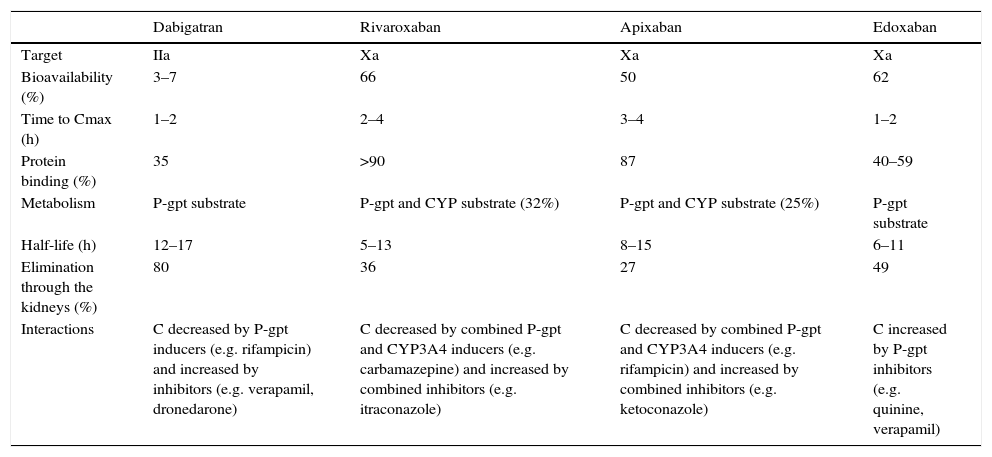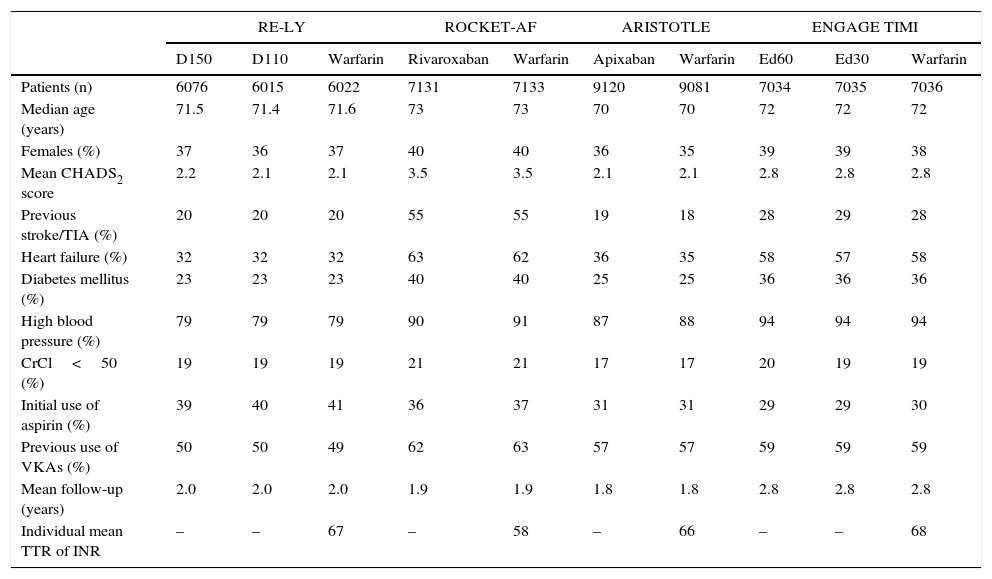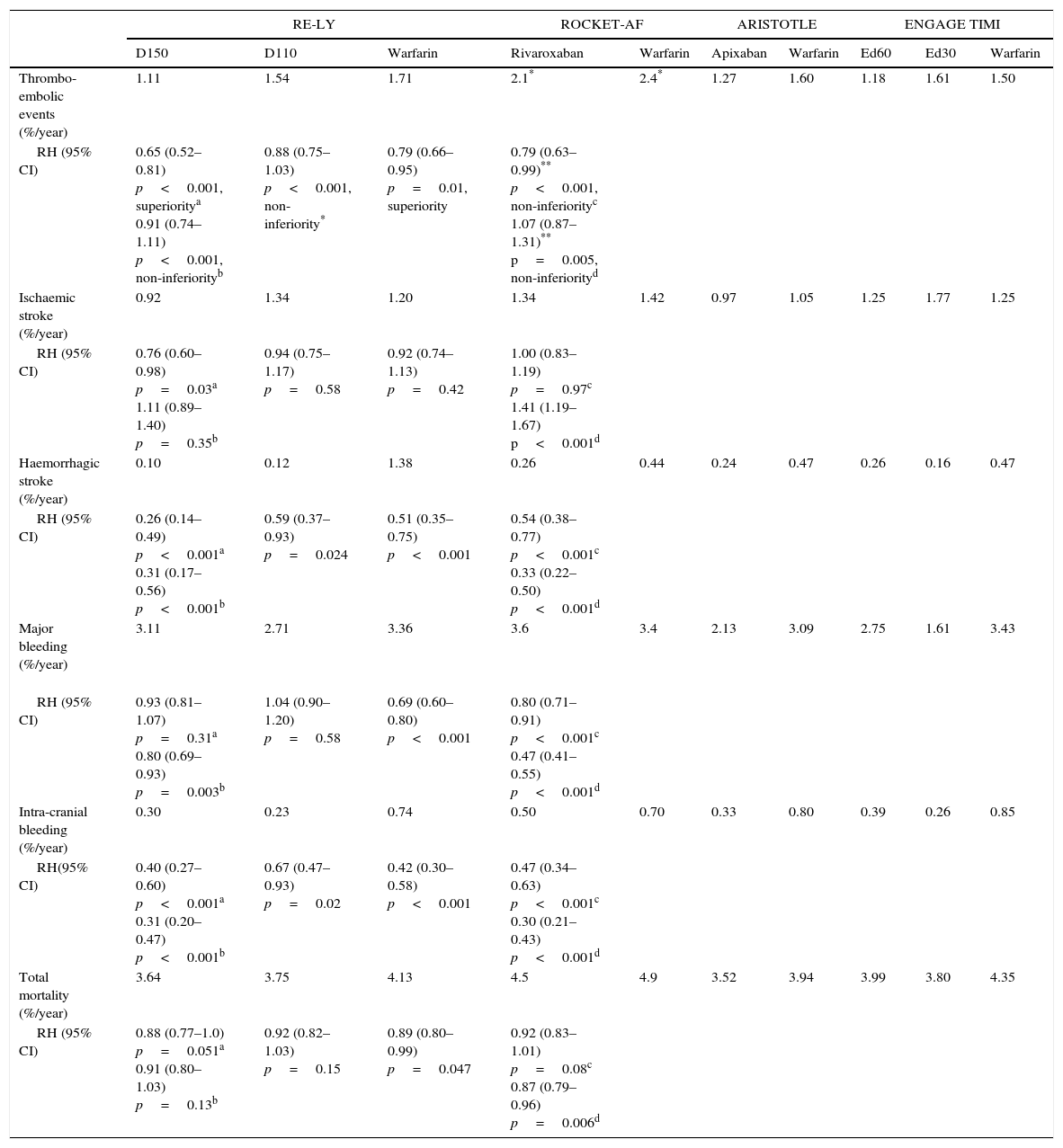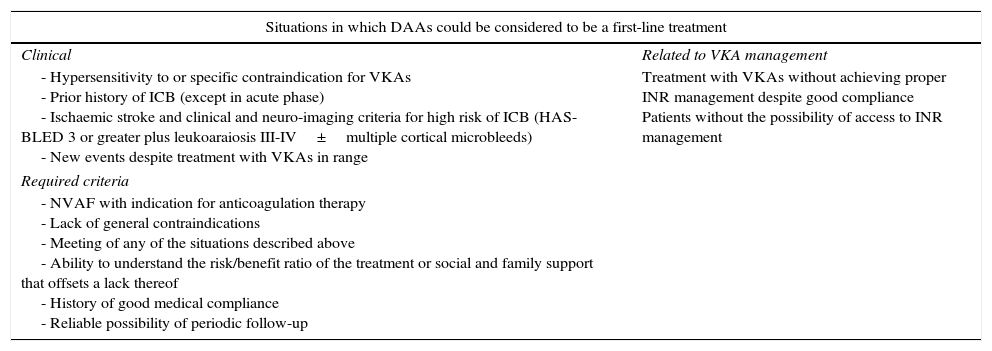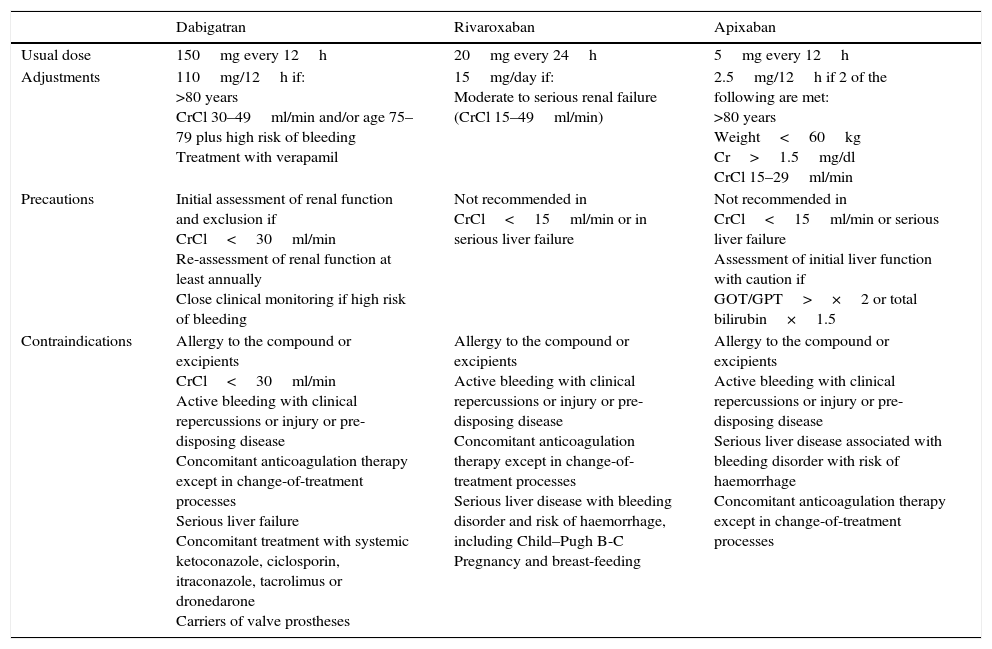Atrial fibrillation is currently a very prevalent disease and it represents one of the most common causes of disabling stroke. Antithrombotic therapies have reduced the incidence of this complication although they pose many limitations and difficulties. As a result, a large number of high risk patients do not receive an appropriate treatment. In recent years, four new oral anticoagulants (NOAC) with relevant advantages in comparison to vitamin K antagonists have been released. Four large phase III clinical trials have demonstrated that NOAC are at least as safe and efficacious as warfarin in stroke prevention in non-valve atrial fibrillation patients with moderate-high thrombotic risk, being their main advantage the reduction in intracranial haemorrhage. The arrival of these drugs has caused great expectations in the management of these patients but also new doubts. Lacking data in some subgroups of frail patients, the absence of specific antidotes available and specially their high cost represent nowadays the main limitations for their generalisation.
La fibrilación auricular es una patología muy prevalente y representa una de las causas más importantes de ictus invalidante. Las terapias antitrombóticas han reducido la incidencia de esta complicación, aunque son muchas las limitaciones que presentan y las dificultades que plantean. Como consecuencia, un número muy elevado de pacientes de alto riesgo no reciben un tratamiento adecuado. En los últimos años se han presentado 4 nuevos fármacos anticoagulantes orales (NACO) que cuentan con importantes ventajas frente a los antagonistas de vitaminaK. Cuatro grandes ensayos de faseiii han demostrado un perfil de eficacia y seguridad de los NACO al menos comparable al de warfarina en la prevención de ictus en pacientes con FA no valvular (FANV) con riesgo trombótico moderado-alto, siendo su principal ventaja la reducción de la hemorragia intracraneal. La llegada de estos fármacos ha despertado grandes esperanzas en el manejo de estos pacientes, pero también nuevas incógnitas. Los escasos datos existentes en determinados subgrupos de pacientes frágiles, la ausencia de antídotos selectivos disponibles y particularmente su elevado coste representan hoy por hoy las principales limitaciones para su generalización.





